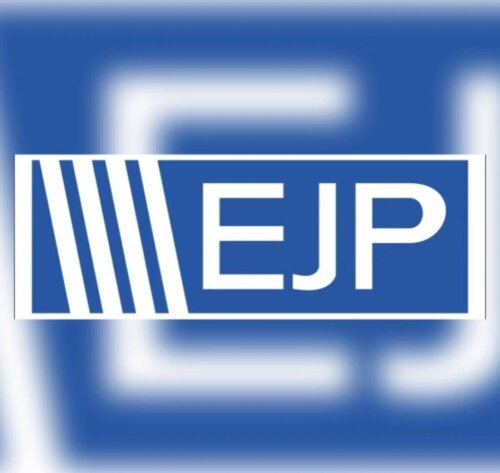Best Merger & Acquisition Lawyers in Mar del Plata
Share your needs with us, get contacted by law firms.
Free. Takes 2 min.
List of the best lawyers in Mar del Plata, Argentina
1. About Merger & Acquisition Law in Mar del Plata, Argentina
Merger and Acquisition (M&A) law in Argentina governs the restructuring of companies through mergers, acquisitions of shares or assets, and related reorganizations. In Mar del Plata, a major port city in Buenos Aires Province, these matters follow national rules applied within the provincial registry framework. The key regulatory pillars are competition law, corporate law, and securities market oversight.
In practice, most M&A activity in Mar del Plata involves due diligence, contract negotiation, and regulatory approvals. Deals often require notifications to the competition authority when concentration thresholds are met, as well as potential approvals from the securities regulator if public companies are involved. Local counsel coordinates with corporate registries, tax authorities, and, where relevant, labor and real estate authorities.
Understanding the local business environment is essential. A Mar del Plata deal may touch on tourism, hospitality, fishing, real estate, and retail sectors, each with its own risk profile. An experienced lawyer can help structure the transaction to balance speed with robust compliance and risk management.
“Merger and acquisition activity in Argentina is increasingly guided by clear antitrust thresholds and robust due diligence requirements.”
Source: Comisión Nacional de Defensa de la Competencia (CNDC) and government guidance on mergers and competition in Argentina
2. Why You May Need a Lawyer
These concrete scenarios show why engaging a Merger & Acquisition lawyer is important for residents and businesses in Mar del Plata.
- A local hotel group in Mar del Plata plans to acquire a competing seaside property. The deal may trigger CNDC notification for concentration and requires drafting a comprehensive sale and purchase agreement with representations on liabilities and contracts.
- A family-owned fishing business seeks to merge with a nearby supplier. A lawyer can oversee due diligence, asset versus share purchase considerations, and a restructuring plan that minimizes tax and regulatory risks.
- A retailer based in Mar del Plata contemplates a cross-border acquisition. The attorney coordinates foreign investment approvals, currency controls considerations, and local employment law implications for transferring staff.
- A construction and real estate developer intends an asset purchase of several parcels. Counsel ensures proper transfer of title, environmental liabilities, and compliance with provincial and national registration requirements.
- A listed company in Mar del Plata plans a tender offer to acquire another local firm. A lawyer guides the public offer process, disclosure requirements, and interactions with the CNV and other authorities.
- In a distressed situation, a Mar del Plata company may pursue bankruptcy or reorganization. An attorney can supervise the relevant negotiations under law on insolvency and corporate restructuring.
In all cases, a lawyer provides help with due diligence, contract drafting, regulatory strategy, tax planning considerations, and post-merger integration-ensuring the transaction complies with Argentine law and minimizes risk.
3. Local Laws Overview
These 2-3 laws and regulatory frameworks shape M&A in Mar del Plata. Each law is a cornerstone for different aspects of a transaction.
Ley de Defensa de la Competencia (Concentraciones and Antitrust) - Ley 22.262
This law governs competition and the review of business concentrations to prevent anti-competitive effects. It requires notification to the appropriate authority when a merger or acquisition could alter market structure. The Commission Nacional de Defensa de la Competencia (CNDC) enforces this framework and may approve, condition, or block deals.
Effective since 1980, the statute remains central to M&A control in Argentina, with ongoing regulatory updates to improve transparency and enforcement. If a contemplated deal in Mar del Plata reaches or exceeds the jurisdictional thresholds, a formal concentration notification is typically mandatory.
Key point: M&A professionals should assess competition impacts early, prepare market definitions, and plan for potential conditions or remedies proposed by the regulator.
“Concentrations must be notified to the competition authority when thresholds are surpassed.”
Source: CNDC overview of competition law and notification requirements
Ley General de Sociedades Comerciales (Corporations) - Ley 19.550
This statute governs formation, organization, and structural changes of business entities, including mergers and corporate reorganizations. It provides the framework for share swaps, asset acquisitions, and other mechanisms used to consolidate businesses in Argentina.
The law has guided corporate governance since its adoption in the late 1970s and continues to be complemented by the Civil and Commercial Code. It is essential for structuring the legal form of the post-transaction entity and for ensuring proper registration and transfer of shares or assets.
Practical tip: Align merger documents with the company’s corporate charter and ensure proper approvals from shareholders as required by statute.
Civil and Commercial Code of the Nation - Código Civil y Comercial (Law 26.994)
The Civil and Commercial Code consolidates civil, commercial, and contractual regimes in one body of law. It governs contract validity, liability, and remedies in M&A deals, including representations and warranties, indemnities, and the mechanics of contract interpretation.
Promulgated in 2014 and enacted in 2015, the Code modernized cross-border and domestic commercial practice. It remains a key reference for deal terms, risk allocation, and enforceability of merger agreements.
Impact on practice: Expected to influence due diligence, disclosures, and post-merger integration strategies through clearer contract and liability rules.
Ley de Mercado de Capitales and Related Securities Regulation - Ley 26.831
This law governs public offerings, trading of securities, and regulatory oversight of capital markets. It is central when mergers involve publicly traded targets or require public offers to shareholders.
The regulation is enforced by the Comisión Nacional de Valores (CNV). Compliance includes disclosure standards, tender offer procedures, and ongoing reporting obligations for listed entities. This framework helps protect minority shareholders during M&A activity.
Practical relevance: If a Mar del Plata target is publicly traded or becomes public as part of a deal, expect enhanced disclosure and regulatory oversight under the securities regime.
Recent regulatory trends emphasize increased transparency in concentration reviews, stricter tender offer requirements, and clearer guidance on cross-border deals. These changes impact the timeline, costs, and structure of M&A transactions in Mar del Plata.
Sources: CNV regulatory framework for the capital markets and government guidance on securities regulation
4. Frequently Asked Questions
What is the difference between an asset purchase and a share purchase?
An asset purchase transfers specific assets and liabilities, leaving the seller intact. A share purchase transfers ownership of the company itself, including its contracts and liabilities. Tax and liability implications differ in each structure.
How do I start the M&A process in Mar del Plata?
Begin with a deal thesis, assemble a deal team, and prepare a preliminary due diligence plan. Engage a local merger attorney to draft initial term sheets and non-disclosure agreements.
What is a standard due diligence checklist for a Mar del Plata deal?
Expect financial, tax, legal, labor, real estate, environmental, and contracts due diligence. A local counsel can tailor the checklist to the industry and deal size.
What is the typical timeline for a medium-sized M&A deal in Argentina?
Due diligence may take 4-6 weeks. Negotiations and regulatory approvals can take 2-4 months, depending on complexity and notification requirements.
Do I need to notify the competition authority for a concentration?
Not always, but thresholds exist. If the deal likely alters market power, a notification to CNDC is typically required before closing.
What are common costs involved in hiring a merger and acquisition lawyer?
Costs include due diligence, contract drafting, regulatory filings, and negotiation time. Lawyers may bill by the hour or offer fixed packages for specific tasks.
Should I hire a local Mar del Plata lawyer or a national firm?
A local lawyer offers familiarity with provincial registrations and local market players. A national firm brings broader experience with cross-border and regulatory matters.
What is the difference between a buyout and a merger in Argentina?
A buyout focuses on acquiring control of a target, often via a share purchase. A merger combines two entities into a new or surviving entity, with broader governance and integration considerations.
Can a deal be blocked by the competition authority?
Yes, if the concentrative effect is deemed to significantly lessen competition. The regulator can block or impose conditions to remedy concerns.
Is there a formal tender offer process for public targets?
Yes, the securities regulator governs tender offers for publicly traded targets, including disclosure and timing requirements for shareholders.
What happens to employees after a merger or acquisition in Argentina?
Labor implications depend on the deal structure and contracts. A lawyer helps address employee transfers, benefits, and compliance with labor laws.
Do I need specific permits for real estate or environmental issues in a Mar del Plata deal?
Yes, depending on the assets and location, regulatory approvals for real estate, zoning, and environmental liabilities may apply to the post-merger entity.
5. Additional Resources
These official sources can provide guidance and regulatory context for M&A in Argentina.
- Comisión Nacional de Defensa de la Competencia (CNDC) - oversight of competition and notification of concentrations. https://www.argentina.gob.ar/defensadecompetencia
- Comisión Nacional de Valores (CNV) - regulatory authority for capital markets and tender offers. https://www.cnv.gov.ar
- Ministerio de Desarrollo Productivo - national policies affecting business and investment, including competition and corporate reforms. https://www.argentina.gob.ar/produccion
“Regulators provide guidelines on mergers and acquisitions to ensure transparent, fair, and timely approvals across sectors.”
Source: CNDC and CNV official guidance on M&A regulatory processes
6. Next Steps
- Define deal objectives and structure - Decide between share purchase, asset purchase, or merger, and determine key risk areas. Timeline: 1-2 weeks.
- Select local counsel in Mar del Plata - Look for someone with M&A, corporate, and regulatory experience in Buenos Aires Province. Timeline: 1-2 weeks.
- Prepare a high-level due diligence plan - Identify critical areas: contracts, liabilities, employees, real estate, and permits. Timeline: 1 week.
- Assess notification obligations - Determine if CNDC notification or CNV filings are needed based on deal type and target. Timeline: 1-3 weeks.
- Draft and negotiate term sheets and confidentiality agreements - Pin down price, structure, and warranties. Timeline: 2-4 weeks.
- Engage tax and accounting advisors - Align post-merger tax planning and consolidation accounting. Timeline: 2-3 weeks.
- Finalize definitive agreements and approvals - Sign SPA, and obtain shareholder, regulatory, and, if applicable, lender consent. Timeline: 4-8 weeks after due diligence.
Lawzana helps you find the best lawyers and law firms in Mar del Plata through a curated and pre-screened list of qualified legal professionals. Our platform offers rankings and detailed profiles of attorneys and law firms, allowing you to compare based on practice areas, including Merger & Acquisition, experience, and client feedback.
Each profile includes a description of the firm's areas of practice, client reviews, team members and partners, year of establishment, spoken languages, office locations, contact information, social media presence, and any published articles or resources. Most firms on our platform speak English and are experienced in both local and international legal matters.
Get a quote from top-rated law firms in Mar del Plata, Argentina — quickly, securely, and without unnecessary hassle.
Disclaimer:
The information provided on this page is for general informational purposes only and does not constitute legal advice. While we strive to ensure the accuracy and relevance of the content, legal information may change over time, and interpretations of the law can vary. You should always consult with a qualified legal professional for advice specific to your situation.
We disclaim all liability for actions taken or not taken based on the content of this page. If you believe any information is incorrect or outdated, please contact us, and we will review and update it where appropriate.









